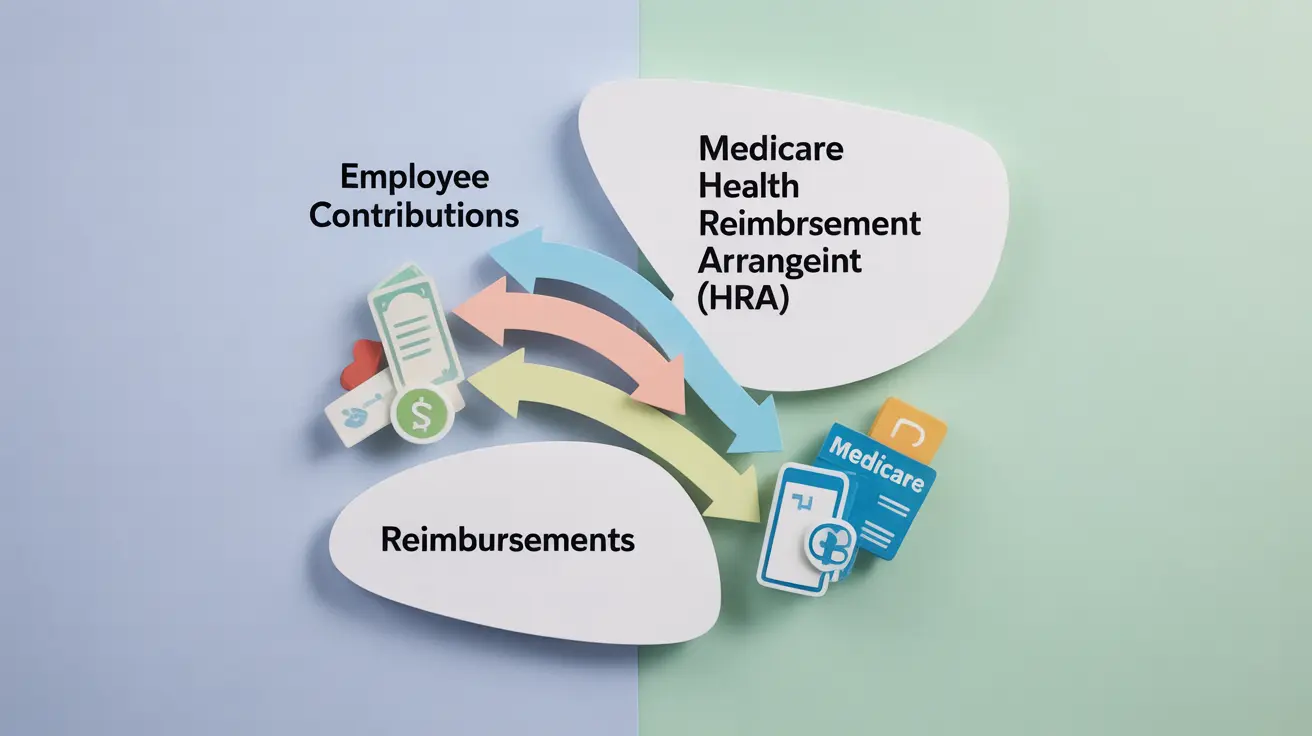Health Reimbursement Arrangements (HRAs) can be a valuable tool for managing healthcare costs when you're enrolled in Medicare. These employer-funded accounts offer a way to receive tax-free reimbursements for qualified medical expenses, including Medicare premiums. Understanding how Medicare HRAs work is essential for maximizing your healthcare benefits and managing your medical costs effectively.
In this comprehensive guide, we'll explore everything you need to know about Medicare HRAs, including their benefits, limitations, and how they interact with various Medicare coverage options.
What Is a Medicare Health Reimbursement Arrangement?
A Medicare HRA is an employer-sponsored benefit that allows companies to reimburse employees and retirees for qualified medical expenses, including Medicare premiums. These arrangements are funded solely by employers and provide tax advantages for both the company and the beneficiary.
Unlike Health Savings Accounts (HSAs) or Flexible Spending Accounts (FSAs), HRAs are completely employer-funded and owned. This means the employer determines the annual contribution amount and establishes the rules for eligible expenses within IRS guidelines.
Types of Medicare-Compatible HRAs
Individual Coverage HRA (ICHRA)
ICHRAs allow employers of any size to reimburse employees for individual health insurance premiums and qualified medical expenses. These arrangements can be used to pay for Medicare Part A, B, C, and D premiums, as well as supplemental coverage costs.
Qualified Small Employer HRA (QSEHRA)
Available to employers with fewer than 50 full-time employees, QSEHRAs provide a way to help employees pay for medical expenses and insurance premiums, including Medicare costs. These arrangements have annual contribution limits set by the IRS.
How Medicare HRAs Work
When you have access to an HRA alongside Medicare coverage, your employer sets aside a specific amount of money each year for your medical expenses. You pay for eligible expenses upfront and then submit documentation to receive tax-free reimbursement from your HRA funds.
Eligible Expenses
Medicare HRAs typically cover a wide range of medical expenses, including:
- Medicare Part A and B premiums
- Medicare Advantage (Part C) premiums
- Prescription drug plan (Part D) premiums
- Medigap (Medicare Supplement) premiums
- Deductibles, copayments, and coinsurance
- Other qualified medical expenses as defined by the IRS
Employer Requirements and Considerations
Employers must follow specific rules when offering HRAs to Medicare-eligible employees. These requirements include non-discrimination rules, proper plan documentation, and ensuring compliance with Medicare Secondary Payer (MSP) rules for companies with 20 or more employees.
Tax Benefits and Advantages
Medicare HRAs offer several tax advantages. Employer contributions are tax-deductible for the company, and reimbursements are tax-free for employees when used for qualified medical expenses. This arrangement can result in significant savings for both parties compared to traditional taxable compensation.
Frequently Asked Questions
What is a Medicare Health Reimbursement Arrangement (HRA) and how does it work?
A Medicare HRA is an employer-funded account that reimburses employees for qualified medical expenses and Medicare premiums. The employer sets aside pre-tax dollars, and employees submit expenses for reimbursement according to the plan's rules.
Can I use an HRA to pay for my Medicare premiums and qualified medical expenses?
Yes, you can use HRA funds to pay for Medicare premiums (Parts A, B, C, and D) and other qualified medical expenses, including deductibles, copayments, and coinsurance, as specified in your employer's plan documents.
What types of HRAs are compatible with Medicare coverage?
The main types of HRAs compatible with Medicare are Individual Coverage HRAs (ICHRAs) and Qualified Small Employer HRAs (QSEHRAs). Each type has specific rules and requirements depending on employer size and plan design.
How do employer size and plan rules affect the use of HRAs with Medicare?
Employer size determines which HRA types can be offered and how they interact with Medicare. Companies with 20+ employees must follow Medicare Secondary Payer rules, while smaller employers have more flexibility in plan design and implementation.
What are the tax benefits and limitations of using an HRA when enrolled in Medicare?
HRA reimbursements are tax-free when used for qualified medical expenses, and employer contributions are tax-deductible. However, limitations may include annual contribution caps, specific expense eligibility requirements, and employer-set restrictions on fund usage.




